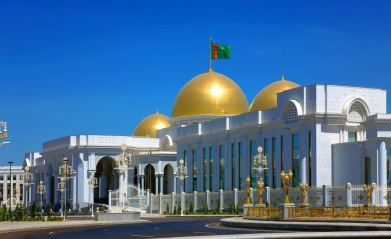Energy, climate and transport: Turkmenistan's approach to regional development priorities
13.06.2025 | 15:00 |BISHKEK, June 13 | ORIENT. The II Forum of Think Tanks of the Republic of Korea and Central Asia in Bishkek focused on the key challenges of the region. Representatives of Turkmenistan actively participated in thematic sessions, presenting the country's strategic approaches to ensuring energy stability, combating climate change and developing transregional logistics routes. The forum brought together leading experts, heads of think tanks, representatives of ministries and key companies from six countries, promoting deepening dialogue and developing joint solutions.
Energy Stability: New Horizons for Cooperation
At the first session, dedicated to energy stability and strategic resources, Bekdurdy Amansaryev, Senior Researcher at the Center for Strategic Studies of the Institute of International Relations of the Ministry of Foreign Affairs of Turkmenistan, spoke. He emphasized that energy stability is the cornerstone of sustainable development and economic growth, and Central Asia, with its significant resources, plays an important role in the global energy architecture, where Turkmenistan is one of the key players. Amansaryev noted that the country, which has the fourth largest natural gas reserves in the world, is actively developing renewable energy sources, modernizing infrastructure and expanding international cooperation, highlighting in this context the partnership with the Republic of Korea, in particular within the framework of the K-Silk Road initiative.
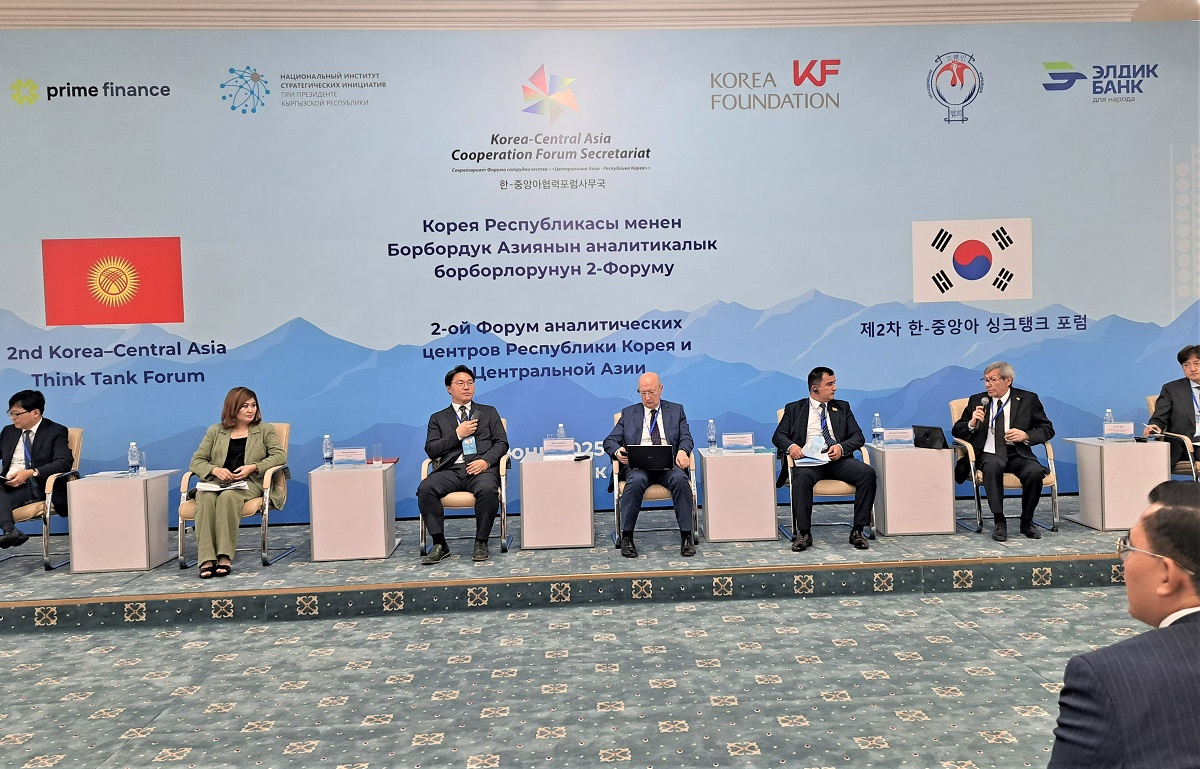
The speaker elaborated on his country’s gas diplomacy, stating that Turkmenistan is the largest supplier of gas to China, annually supplying more than 30 billion cubic meters, which contributes to a significant reduction in greenhouse gas emissions. He also mentioned the development of projects to diversify export routes, including the prospect of supplies to Europe via the Caspian and South Caucasus, as well as the successful completion of the Turkmen section of the TAPI (Turkmenistan-Afghanistan-Pakistan-India) gas pipeline and the continuation of its Afghan section. In his report, Amansaryev also touched on the topic of electricity exports within the TAP project, noting that power lines already supply border facilities in Afghanistan.
Particular attention was paid to the "green turn" of Turkmenistan's energy sector. Bekdurdy Amansaryev spoke about plans to commission capacities of up to 50 MW based on solar generation, in particular, about the first solar station with a capacity of 10 MW built in the Akhal velayat and plans to reach 200 MW by 2030 in cooperation with Masdar. He also mentioned a pilot wind energy project in the Balkan velayat with a potential of more than 100 MW. In the field of technological modernization, the speaker emphasized the introduction of the MARS satellite platform for monitoring methane emissions, achieving zero leaks at the facilities of the Turkmengas State Corporation in 2025 and continuing cooperation with such giants as General Electric, Mitsubishi, Hitachi to improve the efficiency of gas turbines.
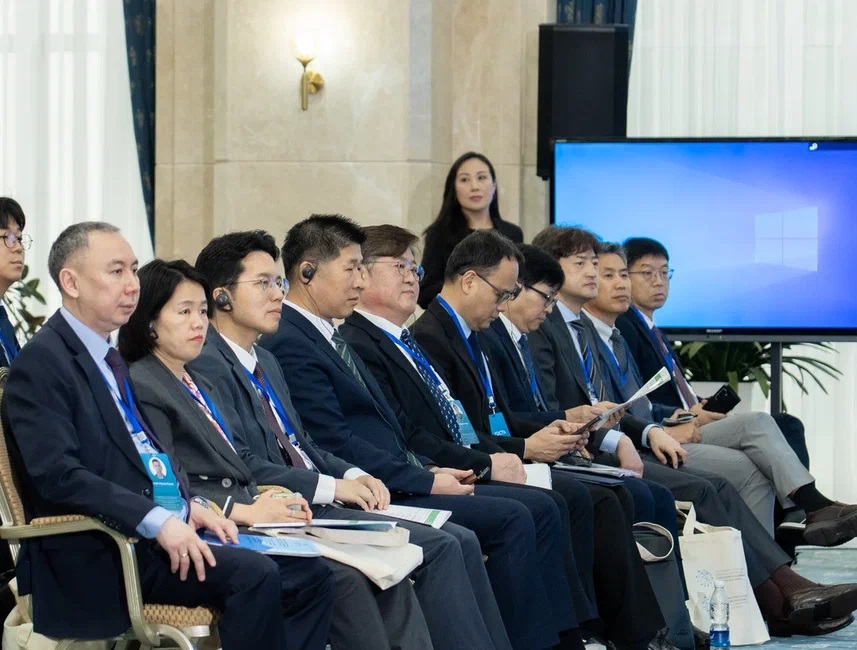
The representative of Turkmenistan also highlighted environmental responsibility issues, noting the country's accession to the Global Methane Commitment to reduce methane emissions by 30% by 2030. He confirmed Turkmenistan's readiness to provide infrastructure to host the Regional Climate Technology Center for Central Asia.
In the context of Turkmen-Korean energy cooperation, Amansaryev noted Turkmenistan's enormous potential in renewable energy (up to 666 GW) and welcomed the participation of Korean companies in energy efficiency, smart grid and hydrogen energy projects. He expressed his opinion on the advisability of creating a joint fund to finance renewable energy projects and proposed actively exchanging experience in managing energy networks using artificial intelligence.
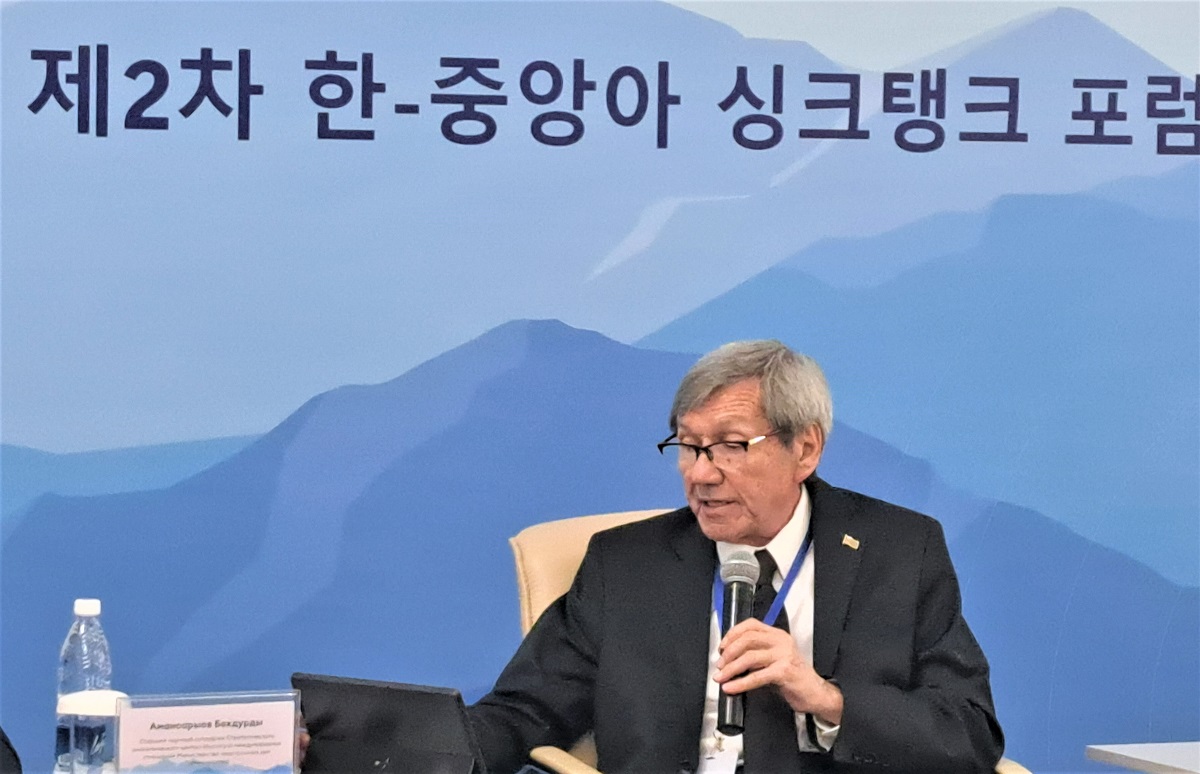
Pointing to the importance of unlocking the potential of Central Asia's critical resources, Amansaryev stressed that the transition to a green economy requires access to resources such as lithium, rare earth elements, fluorine, iodine and barite, and the Central Asian region is becoming an important element of global supply chains. He spoke about Turkmenistan's ability to produce up to 1 million tons of hydrogen by 2035 and the availability of critical minerals such as fluorites, barite, helium and carbonaceous feedstock.
Separately, the importance of building a plant for processing rare earth metals and producing iodine, where Turkmenistan ranks second in the CIS, was noted. The speaker called for the establishment of joint ventures with South Korean companies to produce finished products with added value, as well as the further development of the Trans-Caspian route and the capabilities of the Turkmenbashi International Seaport to ensure uninterrupted supplies. In conclusion, Bekdurdy Amansaryev called for a transition from studying potential to implementing joint projects, emphasizing that Central Asia is not only a region of traditional energy, but also a future supplier of “green energy” and strategic materials.
Climate Challenges and Sustainable Development
During the session on climate resilience and carbon neutrality, Dovletmurad Mamedov, a lecturer at the Institute of International Relations of the Ministry of Foreign Affairs of Turkmenistan, spoke. He emphasized that climate change is one of the most pressing transboundary issues that require joint efforts. Mamedov outlined the key risks for the Central Asian region, including rising temperatures, alternating periods of abnormally hot weather and excessive precipitation, melting glaciers, which could lead to water shortages and desertification. He noted that the economies of the region's countries largely depend on natural resources, especially on fresh water reserves formed in the glaciers of the Pamirs.

Dovletmurad Mamedov drew attention to the inefficient use of water resources, where almost half of the water intended for agro-industrial landscapes is lost due to the unsatisfactory condition of hydraulic structures. In response to these challenges, he said, Turkmenistan prioritizes environmental protection and is a party to more than 20 international environmental documents. He mentioned the Law of Turkmenistan "On Renewable Energy Sources" adopted in 2021 and the work on new regulations for the development of renewable energy sources.
Mamedov highlighted Turkmenistan’s ambitious goals to achieve zero growth in greenhouse gas emissions from 2030, with a particular focus on reducing methane emissions. He outlined the practical steps the country is taking to meet its international commitments, including increasing energy efficiency in the oil and gas sector, introducing automated systems in gas distribution networks, and reconstructing networks. In conclusion, Mamedov drew attention to Ashgabat’s initiative to open a regional climate technology center for Central Asia, designed to seek out and attract new technologies to adapt agriculture and water management to a changing climate.
Transport logistics: integration and development of corridors
In the third session, dedicated to transport logistics and transregional supply chains, Turkmenistan's position was presented by Osman Khemzayev, Senior Lecturer at the Institute of International Relations of the Ministry of Foreign Affairs of Turkmenistan, whose scientific and pedagogical activities are related to the subject of his speech at the forum. He focused on the development of Turkmenistan's transport diplomacy, highlighting the railway line connecting Kazakhstan, Turkmenistan and Iran. This route, he noted, provides direct access from European ports on the Baltic Sea to the markets of the Persian Gulf, the Middle East, Central Asia and the Indian Ocean countries. Khemzayev emphasized that this railway route facilitates regular cargo transportation from China, Russia, India and Turkey, significantly reducing delivery times compared to sea routes. He also mentioned the prospects for the development of transit cargo transportation along the North-South corridor and the successful test launch of a freight train along the Kazakhstan-Turkmenistan-Iran-Turkey route.

Osman Khemzayev particularly noted Turkmenistan's active promotion of initiatives to create transport and logistics routes in Central Asia and the Caspian region, providing access to European markets through the "Caspian Corridor". The Caspian Sea plays a key role in connecting various regions, providing the Caspian states with direct access to South Asia and the Asia-Pacific region in the east, as well as to the Black, Mediterranean and Baltic Seas. He emphasized that land transportation of containers from China to Europe through Central Asia, the Caspian Sea and the South Caucasus significantly accelerates cargo flows compared to sea routes, which is confirmed by the successful operation of the CASCA+ multimodal transport corridor.
Khemzayev recalled the upcoming Third UN Conference on Landlocked Developing Countries (LLDCs) in Avaza, which will be held from August 5 to 8, 2025 under the motto “Ensuring Progress through Partnerships”, confirming Turkmenistan’s strategic location at the crossroads of continents and its desire to develop transport diplomacy.
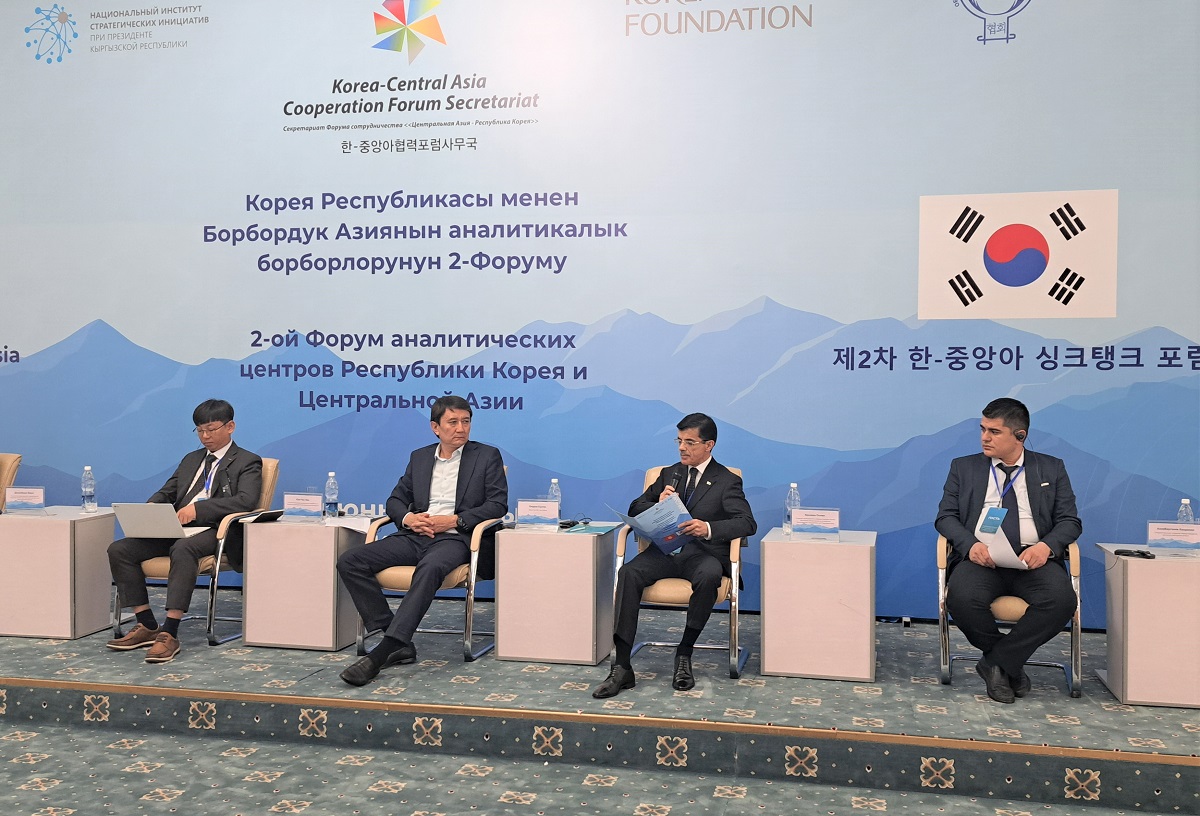
The results of these sessions, which highlight Turkmenistan’s readiness to deepen partnerships and implement innovative solutions in key sectors, demonstrate the country’s commitment to sustainable development of the region in partnership with South Korea.



